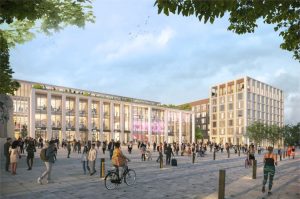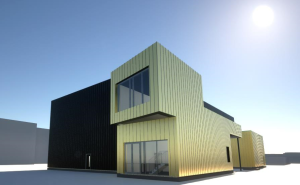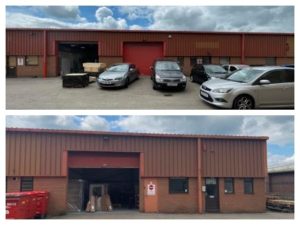Can the next generation of entrepreneurs drive the adoption of sustainable buildings?

It’s one of the most striking examples of industrial regeneration and academic collaboration in the Midlands. But what lessons can be learned from the way in which the University of Nottingham Innovation Park also adopted an approach to building design intended to ensure that it maximised energy sustainability?
The issue has recently been raised by Ingenuity Centre, the most recent development on a site which was once an icon of Nottingham’s manufacturing strength.
Today, the site which used to be the headquarters of Raleigh is home to teaching, research and business activity which ranges from emerging student enterprises to advanced manufacturing programmes involving some of the most well-known names in the global aerospace and automotive industries.
Ingenuity Centre brought together representatives from the University of Nottingham, architects, construction firms, energy sustainability experts and Nottingham City Council.
It posed a series of questions related to the built environment around energy security, renewables, energy efficiency, decarbonising the economy, innovation and competitiveness.
Dr Mark Tock, the operations director of the University of Nottingham Innovation Park, said: “This approach is an example of the University being a good corporate citizen, of trying to convert clever solutions into real-world impacts where sustainable and inspirational spaces enable innovation and knowledge exchange to happen.”
Asked about the most important priority in the pursuit of sustainable energy in building design, panellist Nick Gostick – whose Inntropy business provides support for early stage clean tech companies – said: “It isn’t so much about the buildings as the people inside them. It is about them saving energy while interacting and coming together.”
Dan King, of construction company Robert Woodhead, said: “Renewable technologies will only be as good as the people who use them. From a construction perspective, the priority has to be to get a sustainable energy-efficient fabric which requires minimum M&E.”
Steve Chapman, Ingenuity Lab manager in the University’s Haydn Green Institute, added: “The main priority has to be the ease of use. If the technology is complex, or doesn’t work the way people expect, the risk is that it gets abandoned. There are other considerations in sustainable development, too – how are people travelling to the building, what kind of transport are they using?”
While sustainable building development sounds fine in theory, it can be an expensive option. So how can businesses be persuaded that sustainability represents a sound investment?
Nick Gostick said: “For a lot of companies, sustainability is becoming a moral issue. Owners, founders and leaders of companies go beyond box-ticking and say this is about the way we do business and if we are going to take corporate social responsibility seriously then we have to look at long-term sustainability. And there are benefits – employees increasingly value this kind of stance.”
Matt Hutton, of Bond Bryan Architects, commented: “Evidence of payback is really important. But if you get the ethos right and build it in rather than adding on ‘green bling’ then it doesn’t actually need to cost that much.”
Richard Wigginton, Head of Capital Projects in the University’s estates department, acknowledged that the university faced fewer financial hurdles pursuing a sustainability agenda than other commercial clients.
But he added: “For us, the Innovation Park has been about setting a quality threshold, to say that we are creating a sustainable set of offices, on a campus based on sustainable principles which is also a brownfield redevelopment, and in that sense an exemplar of inner city regeneration, reuse and repurposing. Potential tenants see this as being attractive operationally.”
Hara Two, who runs transport technology business LiveTheGo from the Ingenuity Building, said: “I’ve been part of this campus since 2011, when I came to do my MBA. I never appreciated the real importance of sustainability until I came here – now I’m a tenant in this building working on a project to make transport more sustainable. So this is a campus which communicates sustainability.”
Gill Callingham, regeneration specialist at Nottingham City Council, said the political uncertainties which sometimes impact on investments in sustainability were something all those involved in development would have to live with: “Governments change, policies change, we live in a political world and you can’t control that in the long-term. So it is about creating an economic advantage through sustainability. The market simply has to deal with these issues.”
Could a new generation of entrepreneurs and business people with new attitudes towards sustainability help drive adoption? Dr Lucelia Rodrigues, an associate professor in the University’s Department of Architecture and Built Environment said: “I’m an optimist, so the answer is yes. And once we have that demand we can drive the market.”
Steve Chapman added: “The whole notion of entrepreneurship just being about money is gone. It’s about a sustainable economy so that they can keep going. Only time will tell, but what I observe is a generation which wants to carve out a new path and set a new agenda rather than going out into the world and not being aware of the impact they have.”









